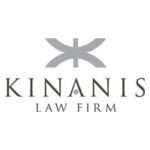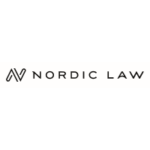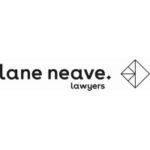-
Please provide a high-level overview of the blockchain market in your jurisdiction. In what business or public sectors are you seeing blockchain or other distributed ledger technologies being adopted?
Overall, Liechtenstein has granted licenses to more than 40 large blockchain companies. Some notable examples include:
- Bitclear AG (decentralized software solutions that enables the uncomplicated processing of payment processes worldwide);
- CONFERO EUROPE AG
- Cornèr Europe AG (is part of Cornèr Bank Group and provides financial intermediaries, asset managers, and family officers with solutions in the area of payment cards)
- Lirium AG (regulated blockchain and digital asset API);
- Floin AG (crypto platform for buy and trade of digital assets);
- LCX (a regulated cryptocurrency exchange and the largest Liechtenstein-based tokensale launchpad – the company performs the role of a token issuer for blockchain startups);
- Neon Exchange AG (self-custody, decentralized crypto platform and investment app);
- SMART VALOR AG (Web3 AI company that provides cryptocurrency AI market intelligence solutions and a regulated and compliant crypto investment platform for retail and banks);
- VNX Commodities AG (offers multichain tokens that represent the real world asset).
The data available in the register has been carefully compiled and is updated in accordance with the legal requirements.
-
Please outline the principal legislation and the regulators most relevant to the use of blockchain technologies in your jurisdiction. In particular, is there any blockchain-specific legislation or are there any blockchain-specific regulatory frameworks in your jurisdiction, either now or envisaged in the short or mid-term?
Liechtenstein was one of the first countries in the world to adopt special legislation on blockchain, namely the Token and Trustworthy Technology Service Provider Act (also TVTG or Liechtenstein Blockchain Act), which has been enforced from the beginning of 2020, creating one of the world’s first safe and regulated environments for token-related services and establishing rules for tokenization of assets, due diligence requirements, KYC and AML procedures as well as licensing procedures for various blockchain-based assets and crypto companies.
In this context, it should be noted that Liechtenstein’s TVTG legislation follows the approach of a “token container model” meaning a token can represent rights to all possible assets, i.e. tokens will be deemed to constitute whatever is “put into the container”. Therefore, for instance, if financial instruments are tokenised (“put into the container”) the token will also be classified as financial instrument under MiFID II. The principle of “substance over form” is applicable here.
It is important that a legal definition of “Trustworthy Technology Service Provider” (TT service provider) appeared, along with licensing requirements for TT service providers. It is a key definition in Liechtenstein’s crypto regulations. It is an umbrella term that covers all entities that perform any operations with tokens.
Outlook on the TVTG and European MiCA
It is also to be expected that the market will continue to grow and the numbers of service providers will increase – especially within the Principality of Liechtenstein – since companies here experience optimal circumstances to raise and scale their crypto-business activities. The TVTG’s high level of regulatory certainty and direct communication with the FMA also contribute to this crypto-friendly environment.
MiCA
Finally, the European legislature has also recognised these trends and will create a uniform legal framework for regulating the crypto industry throughout Europe with the new Regulation on Markets in Crypto-assets (MiCA) which is part of the EU’s legislative proposals for crypto-assets within the EU’s Digital Finance Package. It is currently in the final stage of the EU legislative process.
The core of the MiCA is formed by the “crypto assets”. In addition to crypto assets in general, so-called “asset-referenced tokens” and “e-money tokens” are regulated. Accordingly, general crypto assets are assets that are neither asset-referenced tokens, e-money tokens nor significant tokens.
Crypto-assets are described according to Art. 3 para. 1 no. 2 MiCA as “digital representation of value or rights which may be transferred and stored electronically, using distributed ledger technology or similar technology”. This definition is to be understood as a generic term for all digital assets, which is specified by the definitions of “asset-referenced token” and again by “e-money token” and further by “significant tokens”. The classification system follows the following pattern: crypto-tokens are all asset-referenced tokens and e-money tokens. “Significant tokens”, in turn, are certain forms of “asset-referenced tokens” and “e-money tokens” which, according to MiCA regulation, require special supervision.
MiCA regulation defines “asset-referenced tokens” as assets that represent a stable value by reference to fiat currencies, commodities or other crypto assets. Stable coins, in particular, will be included under this heading. The issuance of such tokens is in principle subject to a reservation of authorisation, which can, however, be used throughout the EEA (“notification” / “passporting system”). The issuance of “asset-referenced tokens” is reserved for legal entities that have disclosure obligations, corresponding client information and internal structures, as well as own funds of at least EUR 350,000.
Finally, MiCA regulation defines “e-money token” as assets that are used as a medium of exchange with stable value in relation to a fiat currency. Furthermore, the issuance of these assets is reserved for appropriately authorised credit institutions or e-money institutions, insofar as the offer is not exclusively directed at professional investors and can only be held by them, or tokens with a value of no more than EUR 5 million are issued.
MiCA regulation imposes precise requirements on the categories of cryptocurrencies, so an accurate classification of the product offered is essential to meet the precise criteria to be met.
Crypto Asset Service Provider
Within the framework of the supervisory law created by the MiCA Regulation, so-called crypto service providers (“CASPs”) are treated, which are the following services.
In Art. 3 para. 1 no. 9 lit. b) of the MiCA Regulation, the service of operating a crypto trading platform (also introduced in the amended TVTG as TT trading platform operator) consists of the management of one or more crypto trading platforms that bring together or consolidate the interests of a large number of third parties in the buying and selling of crypto assets in such a way that a contract for the exchange of a crypto asset either for another crypto asset or for legal tender is concluded.;
- Exchange of crypto assets for money / other crypto assets;
- Transfer services via crypto assets, as well as the acceptance and transmission of orders via crypto assets for third parties;
- Placement of crypto assets;
- Custody and management of crypto assets for third parties;
- Advice and portfolio management for crypto assets.
The individual requirements for the aforementioned service providers are manifold and range from certain minimum capital requirements to the reliability and professional suitability of the issuer’s managers. In each case, a case-by-case assessment is indicated.
However, the MiCA regulation also provides for regulations concerning service providers that are already registered accordingly. Article 143 MiCA regulation regulates the transitional provisions. Corresponding service providers already operating under national law may continue their activities up until 1 July 2026 after the introduction of MiCA regulation until their licence has been obtained under the MiCA regime. Member states may decrease this period on a national level.
This regulation is particularly relevant for already registered TVTG service providers under national Liechtenstein law, as they will require a corresponding licence after the MiCA regulation comes into force. Claiming the simplified authorisation procedure according to MiCA can thus prevent a long original authorisation procedure. With a corresponding registration under MiCA, service providers can benefit from the so-called EEA passporting, i.e. they can provide their services throughout the entire territory of the EEA with only one authorisation within the territorial borders of the EEA.
Changes to national Liechtenstein Law
The Liechtenstein Blockchain Act has been adapted in preparation for MiCA in February 2024 in light of the European legal harmonisation through the future MiCA Regulation, in order to adapt to the new regulations at an early stage and to continue to maintain Liechtenstein’s advantage. The EEA MiCAR Implementation Act is set to enter into force and be applicable on February 1, 2025, further amending large parts of the TVTG.
Introduction of Crypto Assets Term
In accordance with the future regulation within the MiCA regulation for crypto-assets, a corresponding definition will be adopted in the Blockchain Act. Accordingly, “crypto assets” will be fungible tokens in the future. This means that tokens that are not interchangeable without distinction, i.e. are not fungible (e.g., unique), are excluded from the definition. However, parts of non-fungible tokens as well as non-fungible tokens that are issued on a large scale are also included.
Introduction of “Tokenization-Service Provider”
In Liechtenstein, technical service providers are not to be subject to registration. The idea behind the obligation to register corresponding service providers is that they should ensure the representation and transfer of rights through tokens. Technical service providers (e.g. programmers) who are involved in the technical implementation of tokenisation and have no further obligations towards the actual owners of the tokens are to be distinguished from this.
For the purpose of easier differentiation of both activities, the already regulated activity of the token generator will be changed to the effect that the creator will only be liable for the technical quality of the token, while the so-called tokenisation service provider will be liable for both the technical and legal quality of the token. However, both activities are – in contrast to purely technical service providers – directly related to the marketing of tokens. Purely preparatory activities are therefore not subject to registration.
TT-Asset Managers
Until the TVTG amendment, the role of crypto advisors and crypto portfolio management was not covered by the Blockchain Act. Now, such activities are also covered by the Blockchain Act. Accordingly, such service providers shall be persons who manage portfolios on an individual client basis with discretionary powers within the scope of a client mandate, provided that these portfolios contain one or more crypto assets; or who offer or make personalised or specific recommendations to third parties with regard to the purchase or sale of one or more crypto assets or the use of crypto services. It should be noted that a corresponding registration relates exclusively to services that have crypto assets as their object. Activities in connection with financial instruments are not included.
TT-Custodian or Depositary
Until February 2024, Liechtenstein national law has distinguished between the safekeeping of TT keys and TT tokens. In addition, a so-called TT-protector held third-party tokens in his own name on a TT system as a trustee. All three activities were subject to registration.
Now, on the other hand, a single activity as a “TT depositary” subject to registration is to make a distinction superfluous as to whether the tokens are held in one’s own or another’s name, for another’s or one’s own account. Regardless of its form, custody is to be subject to registration for the protection of customers.
Token Loan Company
Against the background of considerable customer risks in the activity of commercial staking (provision of assets for the validation of the system) or lending (transfer of tokens for a certain period of time against an agreed interest rate) of customer tokens, a further service requiring registration is introduced in the form of the “token loan company”. On the one hand, the service of staking and lending is not to be prohibited, but allowed in principle and under certain conditions in the sense of a liberal economic order. On the other hand, customers should receive adequate protection as soon as possible.
According to the introduction of the Blockchain Act, token lending companies are companies that receive tokens under the condition that they can dispose of them at their own discretion or on the instructions of customers, but must transfer the tokens of the same type, quantity and quality back after a certain period of time. Also included in this definition are such service providers who receive the tokens from the clients for the aforementioned purposes and with power of disposal, but who use them only in trust for clients or on behalf of clients. Not included in the definition of a token loan company are pure intermediaries or advisors who facilitate a person’s decision on staking but do not dispose of the tokens themselves.
Finally, token loan companies are placed under a special supervisory regime and must meet corresponding minimum capital requirements if customer’s tokens are not segregated from the service provider’s own operating assets. The supervisory regime should ensure that the company does not use client tokens without the knowledge and explicit consent of the clients and that it regularly carries out risk assessments of its own activities. Furthermore, the minimum capital requirements (10% of the equivalent value of the tokens transferred by customers, does not have to be held in legal currency) are intended to establish a minimum level of customer protection against default and insolvency of the company.
TT Transfer Service Provider
Transfer service provider means a person who initiates the disposal of one or more crypto assets from one TT Identifier (wallet) to another TT Identifier on behalf of customers. The minimum capital is CHF 50’000 for such a service provider. Virtual asset transfer service providers are obligated under their contractual agreements with third parties to clearly define the identities of all parties involved, the specifics and description of the transfer services, the security systems employed, the fees charged, and the applicable legal framework. Moreover, they must consistently adhere to the duties arising from their internal control mechanisms to ensure ongoing compliance and integrity in their operations.
Waiver of Registration for Self-Issuers
Until now, there was a registration requirement under the TVTG for issuers of a public token issue of more than CHF 5 million within 12 months in their own name. The corresponding registration requirement was abolished in February 2024, so that a limit on the amount of the own issue of tokens will no longer apply. However, basic information must still be published, which must be reported to the competent Financial Market Authority of Liechtenstein, FMA.
-
What is the current attitude of the government and of regulators to the use of blockchain technology in your jurisdiction?
Liechtenstein can boast a highly flexible and favourable official attitude towards blockchain related matters. Apart from a clear legal framework, it is an advantage of Liechtenstein that a project can communicate with the regulator, FMA in advance and submit a so-called supervision request (Unterstellungsanfrage) to be able to obtain official feedback regarding which licences and requirements are applicable to the project.
Any project choosing Liechtenstein as a jurisdiction will work in close cooperation with the local regulator and other authorities to become a player on the market. An open, straightforward and clear attitude of local authorities has always been of great help for startups and mature businesses.
-
Is there a central bank digital currency (‘CBDC’) project in your jurisdiction? If so, what is the status of the project?
Swiss franc is an official currency in Liechtenstein, so Liechtenstein is part of Swiss CBDC ecosystem in this regard. Switzerland has an active central bank digital currency project focused on wholesale transactions for financial institutions. On December 1, 2023, the Swiss National Bank (SNB), in partnership with six commercial banks, launched “Helvetia Phase III,” a pilot project issuing real wholesale CBDC in Swiss francs. This initiative, running on the SIX Digital Exchange (SDX) platform, marks the first time the SNB has moved CBDC experimentation from test environments to a production-level financial infrastructure. In this pilot, tokenized bonds are settled against wholesale CBDC on a delivery-versus-payment basis, covering transactions through June 2024.
While the project explores using distributed ledger technology (DLT) for tokenized asset transactions, it does not yet indicate a commitment to permanently implement wholesale CBDC. Instead, the SNB aims to evaluate different settlement models, leveraging earlier Helvetia project insights. This pilot seeks to enhance financial market efficiency and stability by examining the role central bank money could play in a DLT-driven system, reinforcing Switzerland’s pioneering position in the CBDC landscape.
-
What is the current approach in your jurisdiction to the treatment of cryptoassets and decentralised finance (‘DeFi’) for the purposes of financial regulation?
Decentralized finance (DeFi) refers to a range of financial services based on blockchain technology, in particular Ethereum, that replaces traditional financial intermediaries with smart contracts, in particular: decentralized exchanges (DEX), staking, lending, yield farming etc.
The following activities with regulatory considerations should be taken into account:
- Liquidity pools & investment DAOs are considered to be similar to collective investment schemes by most regulators;
- For operations, decentralized exchanges still have to comply with AML legislation; and
- Liechtenstein has a special registration (national license) for staking – token loan company, as described in Question 2 above.
-
What is the current approach in your jurisdiction to the treatment of cryptoassets and DeFi for the purposes of anti-money laundering and sanctions?
Since most regulators apply “same business – same rules” approach, most of the mentioned DeFi business models fall under the application of AML legislation and are obliged to conduct KYC of their customers.
-
What is the current approach in your jurisdiction to the treatment of cryptoassets and DeFi for the purposes of taxation?
In Liechtenstein, the taxation of cryptocurrencies is treated similarly to other financial assets, with specific rules depending on the activity and type of entity involved:
- Private Individuals:
– Capital Gains: Gains from the sale of cryptocurrencies by private individuals are generally tax-free, as long as the activity is not considered a commercial enterprise.
– Income Tax: If cryptocurrencies are used to generate income (e.g., through mining or staking), this income is subject to income tax. - Legal Entities:
– Corporate Tax: Companies holding or trading cryptocurrencies are subject to corporate income tax on profits generated, similar to other assets.
– VAT: Cryptocurrency transactions used as a means of payment are generally exempt from VAT. - Wealth Tax: Cryptocurrencies held by individuals or legal entities are subject to wealth tax, based on their market value at the end of the tax year.
Liechtenstein’s approach provides a favorable environment for both individuals and businesses involved in cryptocurrencies, with tax incentives for private capital gains.
- Private Individuals:
-
Are there any prohibitions on the use or trading of cryptoassets in your jurisdiction? If permitted, is cryptoasset trading common?
All transactions, conducted by TT service providers, are subject to Due Diligence Act and Ordinance (Sorgfaltspflichtgesetz or SPG) which establishes KYC/AML procedures in accordance with the EU regulations. And given the all-encompssing nature of this concept, it is safe to say that all operations with cryptocurrencies in Liechtenstein are subject to KYC/AML regulations.
Cryptocurrencies are not treated as something exceptional in Liechtenstein. A considerable number of crypto exchanges are registered here under the Blockchain Act, providing among other the cryptocurrency trading opportunities:
- Bitclear (exchange service provider);
- Neon Exchange (exchange service provider);
- LCX (exchange service provider inter alia);
- Lirium (exchange service provider inter alia);
- Mimo Capital (exchange service provider);
- savedroid FL (exchange service provider);
- VNX Commodities (exchange service provider inter alia);
- Smart Valor (token depository and exchange service provider);
- Salus Alpha Financial Services (token depository and exchange service provider);
- BTSE (exchange service provider); and
- Bitcoin Suisse (Liechtenstein) (token depository and exchange service provider).
-
To what extent have initial coin offerings (‘ICOs’) taken place in your jurisdiction and what has been the attitude of relevant authorities to ICOs? If permissible, what are the key requirements that an entity would need to comply with when launching an ICO?
The Principality of Liechtenstein as possible jurisdiction for initial coin offerings (ICO) and blockchain projects in general got on the radars together with Switzerland as it published ICO fact sheet in 2017. Nevertheless, it should be highlighted inter alia that after over 80% of unregulated initial coin offerings (ICOs) turned out to be scams, regulated utility token offerings (UTO) and security token offerings (STOs) became more popular as ways of fundraising. For example, LCX AG provides standardized services for compliant utility token offerings.
Major requirements for own token issuance could be in general named as follows.
I – Registration as Token Issuer
Token issuer registration is needed for the following cases.
- Persons who publicly offer tokens on behalf of third parties, applicable to utility tokens only; to issue security tokens for third parties one would most likely need an investment firm licence.
- Persons who carry out their own issuance as of the TVTG amendment of February 2024 must no longer register if tokens are issued in their own name on their own behalf. Issuers of their own tokens therefore only need to notify the FMA of the issuance and provided basic information sheets.
Token issuer registration requirements include the following.
- Personnel, management and shareholders have to be reliable in terms of bankruptcy and criminal law, and an organisational structure with defined areas of responsibility, including procedures for dealing with conflicts of interest must exist.
- Minimum capital of CHF50,000, CHF100,000 and CHF250,000 must be at the company’s disposal if tokens with a total value of, respectively, up to and including CHF5 million, of more than CHF5 million but less than CHF25 million and of more than CHF 25 million are issued within a period of 12 months.
II – Prospectus for Security Tokens or Basic Information and Notification for Utility Tokens
Article 30 of the TVTG contains an obligation to prepare, report and publish basic information, which should include information about the tokens to be issued and associated rights. The central difference from a securities prospectus is that basic information according to TVTG must be brought to the attention of the FMA in good time before the token issuance; the information must also be published somewhere (eg, on the issuer’s website). However, no formal approval of the information by the FMA is required.
The TVTG furthermore states certain exceptions from the obligation to prepare and publish basic information (Art. 31 TVTG) i.a.:
- if all investors waive their right to receive the basic information,
- if the offering is addressed to fewer than 150 potential clients or
- if the total volume of the issuance amounts to less than CHF5 million.
- However, the token issuance still has to be notified to the FMA.
The licensing pressure leads to a peculiar phenomenon of token launchpads. These are platforms that have all the necessary licenses/registrations and issue tokens for other companies, since there is little economical sense in obtaining all the licenses for issuing utility token only.
A tokenisation platform is a platform that offers tokenisation services for real-world assets, bringing traditional investments to a digital sphere where they might be offered to a larger target audience. Services offered may extend from the tokenisation of various alternative investments, collectable cars, precious metals and stones and real estate, other physical goods or intellectual property to the tokenization of stocks/stock options. Such services developed and became more popular during 2021 as it seems that investors increasingly sought to bring their physical assets to the blockchain.
In order to establish a platform to tokenise assets, such as securities or physical goods, a token issuer registration is required. Besides that, an investment firm licence for security tokens may become obligatory. The relevant requirements, however, are determined by the circumstances of the individual case.
Registered token issuers and/or generators in Liechtenstein include:
- LCX (token issuer and token generator);
- Equanimity (token generator);
- VNX Commodities (token issuer inter alia);
- Bank Frick & Co (token issuer and token generator inter alia);
- Mimo Capital (token issuer);
- CorPa Blockchain AG (token issuer and token generator inter alia);
- Floin AG (token issuer and token generator inter alia); and
- VP Bank AG (token issuer and token generator).
-
Are there any legal or regulatory issues concerning the transfer of title to or the granting of security over cryptoassets?
The Blockchain Act is notable for the fact that it creates a unique civil law framework, to provide legal certainty for transfer of title to or the granting of security over tokens and virtual assets.
Key points for effective transfer of tokenised assets mentioned in the Blockchain Act are:
- the holder of the private keys has right of disposal (Verfügungsgewalt) over the token;
- they are presumed to be the authorised person with “proprietor’s rights” (Verfügungsberechtigte) over the token; and
- the disposal over the token effects the disposal over the right represented by the token.
-
How are smart contracts characterised within your legal framework? Are there any enforceability issues specific to the operation of smart contracts which do not arise in the case of traditional legal contracts?
In general, smart contracts are not yet recognized within Liechtenstein legal framework. However, the connection between the person, the token and the asset over the token is regulated in the Liechtenstein Blockchain Act that provides more guarantees for enforceability of claims towards tokens and assets behind the tokens.
-
How are Decentralised Autonomous Organisations (‘DAOs’) treated in your jurisdiction?
In Liechtenstein, there are no special regulations for DAOs, but there is good practice of applying existing provisions from the general legal landscape to DAOs by using the following entities as DAO legal wrappers.
1. Association (Verein)
– is an association of persons organized as a corporate entity. It can have any purpose, unless it is unlawful or against good morals.
1.1. Requirements
Requirements for establishing and operating an association in Liechtenstein to reflect a DAO are as follows:
- No initial capital requirement;
- Articles contain confirmation of the founding will, purpose, name, office and organs of the association;
- Associations with economic purposes related to commercial businesses (e.g., trade or manufacturing) must register in the commercial register to gain legal personality;
- Registration in the commercial register is optional for non-commercial associations (e.g., political, cultural, religious);
- Executive board including local board member. Depending whether association is going to have an auxiliary commercial purpose, this should be a director for purposes of commercial permits (Gewerbebewilligungen) or without auxiliary commercial purpose a licensed trustee pursuant to Art. 180 a PGR;
- All associations, regardless of commercial activity, must keep books in line with orderly bookkeeping principles, including records that clearly present the business’s progress and asset development.
1.2. The corporate bodies
- Board members need to be appointed, including local board member;
- General meeting;
- An auditor must be appointed for commercial businesses, unless the audit review is waived, eliminating the need for an auditor.
Corporate bodies, benefits and disadvantages, as well as timeline are similar to those for an association in Switzerland. A Liechtenstein association is also specifically suitable for Community/ Protocol DAO.
2. Foundation (Stiftung)
2.1. Requirements
- Local board member being a licensed trustee pursuant to Art. 180 a PGR;
- Reporting, Accounting, Auditing are mandatory for all foundations;
- Minimum Capital of CHF/EUR/USD 30,000 needed for setup;
- The foundation deed is the mandatory document.
2.2. The corporate bodies
- Board including local board member being a licensed trustee pursuant to Art. 180 a PGR;
- Beneficiaries;
- Optionally and normally recommended protectors.
A Liechtenstein association is also specifically suitable for a Protocol DAO. Additionally, tax advantages are a key feature of Liechtenstein foundations (CHF 1800 per annum for so-called passive structures).
3. Liechtenstein Venture Cooperative
– ideal legal wrapper for collaborative innovation efforts and small service DAOs.
3.1. Requirements
- No capital requirement; innovation serves as capital;
- Innovation detailed in a certified document, transferring ownership to LVC upon contribution;
- Managing Board may allow the president to sign most documents solo, excluding Founder’s Resolution and Formation Deed;
- Commercial register entry is optional but offers benefits like name registration and increased visibility;
- Entry in the commercial register leads to automatic tax register entry; otherwise, direct registration with the tax administration is required for a tax number.
3.2. The corporate bodies
- General Meeting of Members;
- Managing Board;
- Auditors;
- Commissions and Delegates (as determined by the General Meeting of Members’ resolutions and regulations).
3.3. Timeline
Timeframe is normally approximately 2-3 weeks to prepare the required documents. Then approximately 2-3 weeks to receive originals, confirm appointment with commercial registry and have the cooperative entered into the commercial registry.
-
Have there been any governmental or regulatory enforcement actions concerning blockchain in your jurisdiction?
It is worth noting that legal clarity and transparency is added by the fact the government treats crypto banks and crypto companies identically to traditional banks and financial firms when it comes to regulation enforcement. As a general rule, enforcement procedures are initiated only when there is an infraction. FMA issues a warning to the company in question, and provides time for said company to remedy the issue. Only after that more drastic actions are undertaken, up to revoking the license.
In cases where crypto banks and companies were involved in fraud, criminal investigations were initiated, similar to investigations into fraudulent traditional finance firms.
-
Are there any other generally-applicable laws, case law or regulations that may present issues for the use of blockchain technology (such as privacy and data protection law or insolvency law)?
Among other notable examples of blockchain-friendly legal issues it could be noted that after intense discussions, the Liechtenstein government has proposed including uncertified security or book-entry security with all the functions of a traditional security of public faith, by incorporating new articles into the Final Part of the Persons and Companies Law (PGR).
It should also be noted that all operations with cryptocurrencies and tokenized assets in Liechtenstein are subject to Due Diligence Act and Ordinance.
-
Are there any other key issues concerning blockchain technology in your jurisdiction that legal practitioners should be aware of?
Liechtenstein as part of the European Economic Area (EEA) has implemented the European Directives into national legislation, which is the case with EEA Securities Prospectus Implementation Act (EWR-WPPDG).
MiCA entered into force 30 June 2023. With the entry into force not all rules of MiCA will apply immediately. The only rules that will immediately enter into application relate to the provision of additional regulatory guidance, such as rules on the development of regulatory technical standards, the issuance of guidelines and the adoption of delegated acts by EU regulators and supervisors.
On 30 June 2024 the rules relating to stablecoin issuers applied. These rules are divided into rules for asset-referenced tokens (ARTs) and rules for e-money tokens (EMTs), which are set out Titles III and IV MiCA.
On 30 December 2024 all other rules will apply. These rules include, inter alia, rules for issuers of crypto-assets other than ARTs/EMTs, crypto-asset service providers (CASPs), and the prevention of market abuse.
Pursuant to art. 143 MiCA, the regulation sets out several transitional measures relating to various topics.
In brief, these rules relate to the following:
- Offers of crypto-assets before 30 December 2024;
- Admissions to trading before 30 December 2024;
- CASPs that provided their services in accordance with applicable law before 30 December 2024;
- Issuers that issued ARTs in accordance with applicable law before 30 June 2024; and
- The option for Member States to apply a simplified procedure for applications for an authorisation as a CASP that is submitted between 30 December 2024 and 1 July 2026 by entities that were authorised under national law to provide crypto-asset services on the date of entry into application.
Liechtenstein: Blockchain
This country-specific Q&A provides an overview of Blockchain laws and regulations applicable in Liechtenstein.
-
Please provide a high-level overview of the blockchain market in your jurisdiction. In what business or public sectors are you seeing blockchain or other distributed ledger technologies being adopted?
-
Please outline the principal legislation and the regulators most relevant to the use of blockchain technologies in your jurisdiction. In particular, is there any blockchain-specific legislation or are there any blockchain-specific regulatory frameworks in your jurisdiction, either now or envisaged in the short or mid-term?
-
What is the current attitude of the government and of regulators to the use of blockchain technology in your jurisdiction?
-
Is there a central bank digital currency (‘CBDC’) project in your jurisdiction? If so, what is the status of the project?
-
What is the current approach in your jurisdiction to the treatment of cryptoassets and decentralised finance (‘DeFi’) for the purposes of financial regulation?
-
What is the current approach in your jurisdiction to the treatment of cryptoassets and DeFi for the purposes of anti-money laundering and sanctions?
-
What is the current approach in your jurisdiction to the treatment of cryptoassets and DeFi for the purposes of taxation?
-
Are there any prohibitions on the use or trading of cryptoassets in your jurisdiction? If permitted, is cryptoasset trading common?
-
To what extent have initial coin offerings (‘ICOs’) taken place in your jurisdiction and what has been the attitude of relevant authorities to ICOs? If permissible, what are the key requirements that an entity would need to comply with when launching an ICO?
-
Are there any legal or regulatory issues concerning the transfer of title to or the granting of security over cryptoassets?
-
How are smart contracts characterised within your legal framework? Are there any enforceability issues specific to the operation of smart contracts which do not arise in the case of traditional legal contracts?
-
How are Decentralised Autonomous Organisations (‘DAOs’) treated in your jurisdiction?
-
Have there been any governmental or regulatory enforcement actions concerning blockchain in your jurisdiction?
-
Are there any other generally-applicable laws, case law or regulations that may present issues for the use of blockchain technology (such as privacy and data protection law or insolvency law)?
-
Are there any other key issues concerning blockchain technology in your jurisdiction that legal practitioners should be aware of?


















